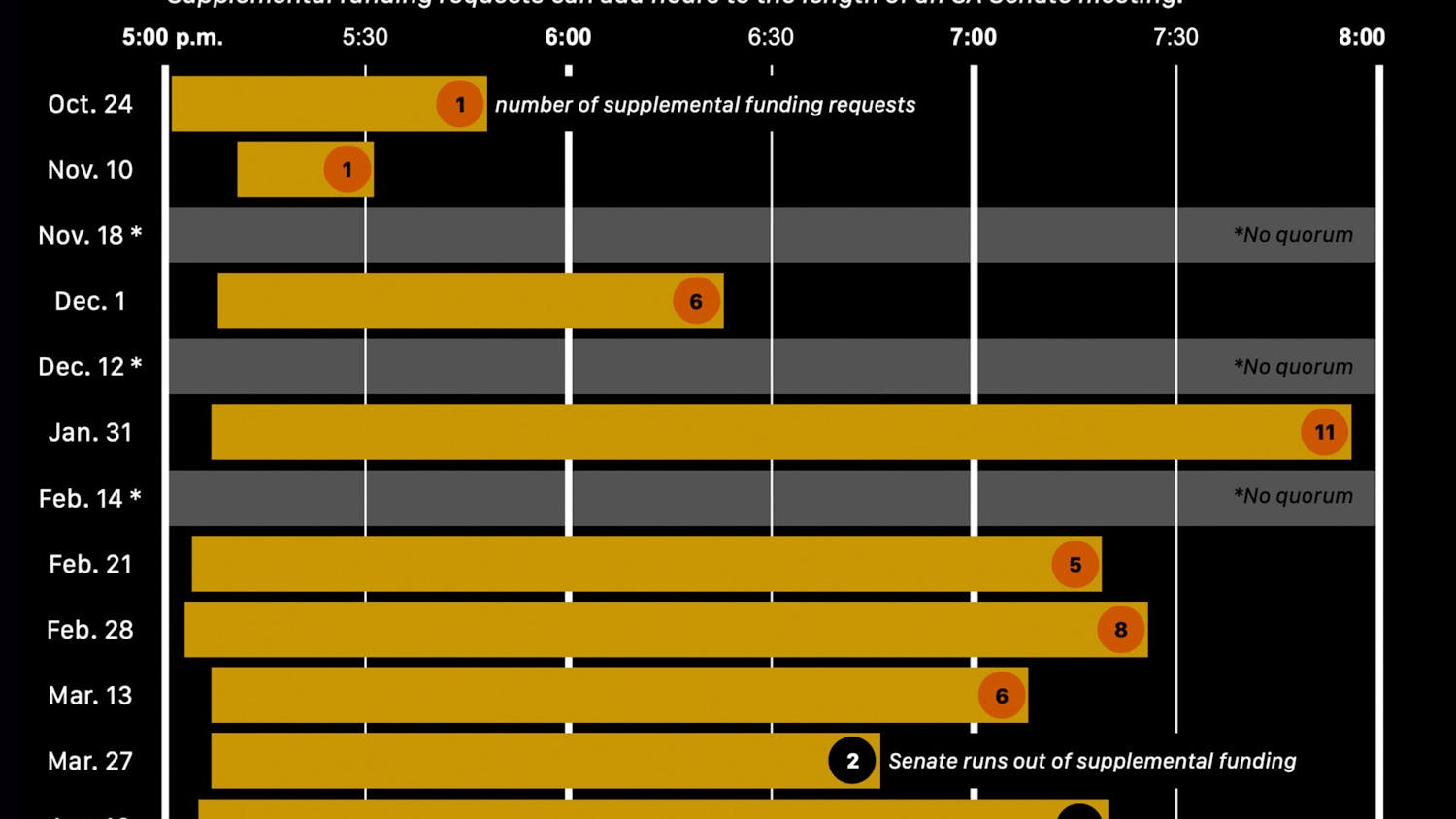With the heated political climate that has taken the globe by storm, people all over the world are looking for a way to get their voices heard.
Over 100,000 people in various cities have come out waving signs and chanting for one of several reasons - some are against the war with Iraq, others are pro-war, while some are undecided but want to show support for U.S. troops. Others rally for causes unrelated to President George W. Bush's latest foray into the Bush family sandbox.
Not surprisingly, opposing protesters of all causes often cannot see the other sides' views, which can sometimes lead to violence between opponents.
But can one group be told they do not have the right to organize and protest while others rally uncontested?
On Feb. 19, the Supreme Court ruled that anti-abortion protestors couldn't be prosecuted for disruptive behavior, such as blocking entrances to clinic doors.
The decision was supported by pro-lifers and pro-choicers alike, as both groups recognize the value of free speech. But while protesters should be allowed to rally, they should not have the right to prevent women from entering clinics or to make employees at clinics feel unsafe.
According to a Feb. 28 CNN.com article, in the mid-1980s some abortion clinics alleged that anti-abortion rallies sometimes "turned into violent confrontations, including threats and attacks on patients and medical workers."
This behavior is unacceptable, as the goal of demonstrators should not be to shut an institution down or to harm the people who use it, but instead to dissuade potential patrons from using its service. But as pointless as pro-life protests outside of women's clinics may be, they still must be allowed.
Even more controversial and often detestable groups have a right to share their views, as long as they do not impose those views upon others. Still, these groups often have to fight for their constitutional right to free speech. One example of such a group nearly being silenced is the Ku Klux Klan, which organized a rally in New York City in 1999.
Citing an 1845 New York State law that bans protesters and marchers from wearing masks and other disguises in public rallies, the city attempted to prevent the group from gathering. The city successfully banned KKK members from wearing masks, and as a result, only a few dozen of the cowardly racists showed up to the rally. These members eventually had to be moved into a federal court building after onlookers began throwing batteries at them. Although in this case it may have been understandable, this is unacceptable behavior toward anyone who is simply voicing his or her own opinions.
Dangerous precedents are set when free speech is impeded upon, and even in the most extreme cases, opposing viewpoints must be allowed to be voiced. Unlike the KKK march and the anti-abortion activists, protesters of the 2000 Amadou Diallo verdict were arrested for their actions. The four New York City police officers that shot 41 bullets at the African immigrant were acquitted of second-degree murder, and 200 people took to the streets to voice their disapproval.
Some of these protesters were arrested for blocking the streets in front of St. Patrick's Cathedral on Fifth Avenue and taunting police. Why were these protestors arrested while pro-lifers are not? Neither group was harming anyone, nor were they outside of their right to express themselves. At worst, the groups were nuisances to those trying to cross their path.
But while all these groups have a constitutional right to gather and protest, how effective are their collective voices? Women who want an abortion are going to find ways to get one, whether in a clinic or elsewhere, and protestors are not going to change their minds. The KKK will always hold their nonsensical views, and as tolerance grows, the group will ultimately die; for now, they must be tolerated.
Other protesters - members of smaller and more specific causes - unfortunately do not have the foundation that these larger groups have, and therefore make minimal, if any, difference. Police brutality in New York has become a regrettable way of life, and it is unlikely to change, regardless of protests.
Even protests against the war have no effect except to divide the country. And Sunday night's pre-Academy Awards candlelight vigil was about as effective as the vigil UB students held in protest of SUNY's proposed tuition increase. Not only are such "vigils" ludicrous, but they also trivialize legitimate vigils such as those held in memory of Sept. 11, 2001, or the Columbia shuttle tragedy.
Despite their hopelessness, however, even vigils such as these must be considered a valuable tool of expression, as all people should appreciate the right to speak their minds. To be taken seriously, though, protesters must realistically gauge their effectiveness before they launch themselves into a cause. Burning a candle does not equal activism.





